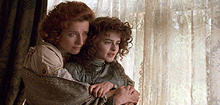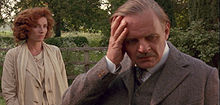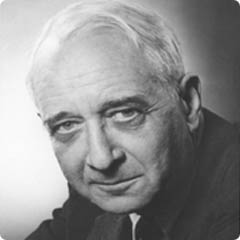Forster himself, What I Believe, Two Cheers for Democracy (1951):
I do not believe in Belief....Faith, to my mind, is a stiffening process,
a sort of mental starch, which ought to be applied as sparingly as
possible. I dislike the stuff....My motto is : "Lord, I disbelieve - help thou my unbelief"....
I have, however...to keep my end up in it. Where do I start? With personal relationships. Here is something comparatively
solid... Not absolutely solid,
for Psychology has split and shattered the idea of a "Person", and
has shown that there is something incalculable in each of us,
which may at any moment rise to the surface and destroy our
normal balance. We don't know what we are like. We can't
know what other people are like. How, then, can we put any
trust in personal relationships, or cling to them in the gathering
political storm ? In theory we cannot.
But in practice we can and do.....For the purpose of
living one has to assume that the personality is solid, and the
"self" is an entity, and to ignore all contrary evidence. And since
to ignore evidence is one of the characteristics of faith, I certainly
can proclaim that I believe in personal relationships.... One must be fond of people and trust them if one is not
to make a mess of life, and it is therefore essential that they should
not let one down. They often do. The moral of which is that I
must, myself, be as reliable as possible, and this I try to be. But
reliability is not a matter of contract...It is a matter for the heart, which signs no
documents. In other words, reliability is impossible....
...there lies at the back of every creed something terrible and hard...I
hate the idea of causes, and if I had to choose between betraying
my country and betraying my friend I hope I should have the
guts to betray my country....
| |












